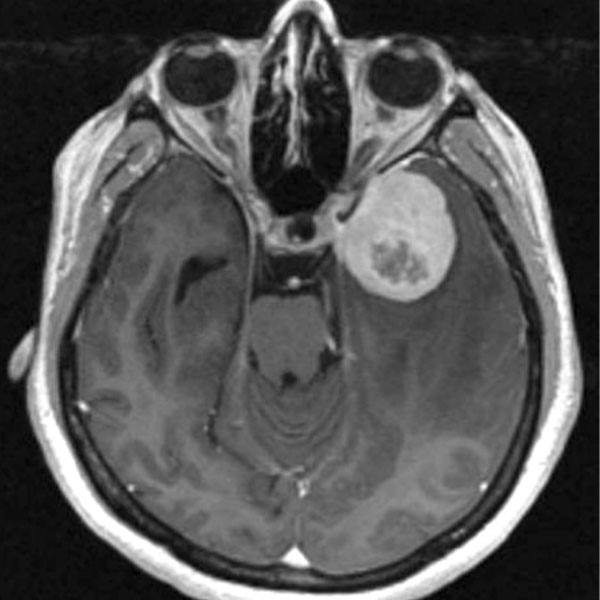-
Science Saturday: Novel data-driven approach for precision medicine
Thousands of patients’ tumors have been sequenced in the past decade, yielding a rich source of data on the changes associated with the cancer development and treatment response. However, there are no validated methods that are used in the clinic to select the best therapy. Today, Mayo Clinic researchers report an omics-guided (comprehensive) drug prioritization method tailored to an individual cancer patient.
“To date, genomic sequencing data provided to clinicians includes information on a  small set of gene alterations. Recommendations for therapy do not account for many other genomic and clinical factors that might dictate tumor response,” says Mayo researcher Krishna Rani Kalari, Ph.D. “Therefore, there is an urgent need for a comprehensive approach to integrate an individual’s clinical, germline and tumor genomic data to identify and select the best treatment for a patient.”
small set of gene alterations. Recommendations for therapy do not account for many other genomic and clinical factors that might dictate tumor response,” says Mayo researcher Krishna Rani Kalari, Ph.D. “Therefore, there is an urgent need for a comprehensive approach to integrate an individual’s clinical, germline and tumor genomic data to identify and select the best treatment for a patient.”
Dr. Rani Kalari, a computational biologist, and lead author of a Mayo Clinic led study, published in JCO Clinical Cancer Informatics showed that combining multiple sources of data to predict the most effective drug choices for patients with cancer is feasible.
“We developed PANOPLY- Precision cancer genomics report: single sample inventory, an open-source computational framework to analyze complex multidimensional data to determine the most appropriate drug to target an individual’s tumor,” says Dr. Kalari. “PANOPLY approach is more comprehensive and efficient than existing single-sample analyses methods,” says Dr. Kalari.
PANOPLY includes existing FDA-approved drugs and prioritizes the drugs for patients with cancer-based on their omics profile and reports the results for oncologists to guide treatment decisions. In this study, PANOPLY was applied to in-house breast cancer datasets, and the findings were confirmed with patient-derived xenograft (PDX) models Tissues or cells from a patient’s tumor are implanted into an immuno-deficient mouse. These mouse models are used to create an environment that resembles the natural growth of cancer, for the study of cancer progression and treatment. In addition, the researchers demonstrated the flexibility of the PANOPLY framework by applying it to colon, breast, ovarian and glioblastoma datasets from The Cancer Genome Atlas.
Dr. Rani Kalari is using high-throughput tumor sequence data and teaming up with basic scientists such as Liewei Wang, Ph.D., M.D. director of the Mayo Clinic Pharmacogenomics Program, to determine whether PANOPLY can identify novel drug targets. After successful testing and benchmarking of the method using PDX repositories, they plan to work towards the ability to merge PANOPLY reports into the electronic medical records so the information is available to oncologists.
“Currently, the vast majority of patients with cancer continue to receive treatments that are minimally informed by omics data. Working with Mayo Clinic surgeon Judy Boughey, M.D. and oncologist Matthew Goetz, M.D., we anticipate that the proposed work will open new research and clinical vistas to allow a more individualized approach for the better treatment of patients,” says Dr. Kalari.
Mayo Clinic authors are:
Krishna R. Kalari, Ph.D.
Jason P. Sinnwell
Kevin J. Thompson, Ph.D.
Xiaojia Tang, Ph.D.
Erin E. Carlson
Jia Yu, Ph.D.
Peter T. Vedell, Ph.D.
James N. Ingle, M.D.
Richard M. Weinshilboum, M.D.
Judy C. Boughey, M.D.
Liewei Wang, Ph.D., M.D.
Matthew P. Goetz, M.D.
Vera Suman, Ph.D.
This study is funded in part by the Mayo Clinic Center for Individualized Medicine; Nadia’s Gift Foundation; John P. Guider; the Eveleigh Family; George M. Eisenberg Foundation for Charities; generous support from Afaf Al-Bahar; and the Pharmacogenomics Research Network (PGRN). Other contributing groups include the U54 GM114838, Mayo Clinic Cancer Center (P30CA 15083-43) and the Mayo Clinic Breast Specialized Program of Research Excellence (SPORE- P50CA116201).
###
Register to learn how pharmacogenomics is improving patient care
Join the Pharmacogenomics (PGx) conversation with the Center for Individualized Medicine! On June 8th, at the Clinical Pharmacogenomics Symposium, experts review the foundational concepts and work through relevant patient cases for your practice. Register today!
Stay informed
For more information on the Mayo Clinic Center for Individualized Medicine, visit our blog, Facebook, LinkedIn or Twitter at @MayoClinicCIM.









